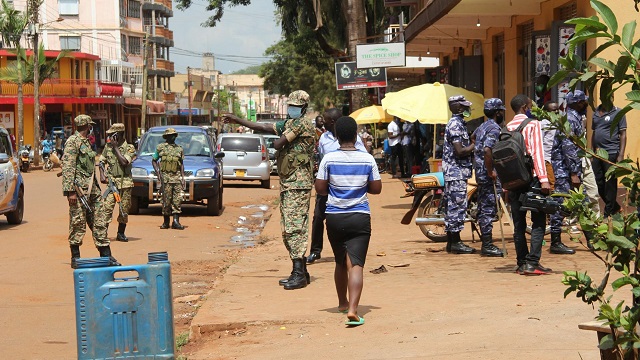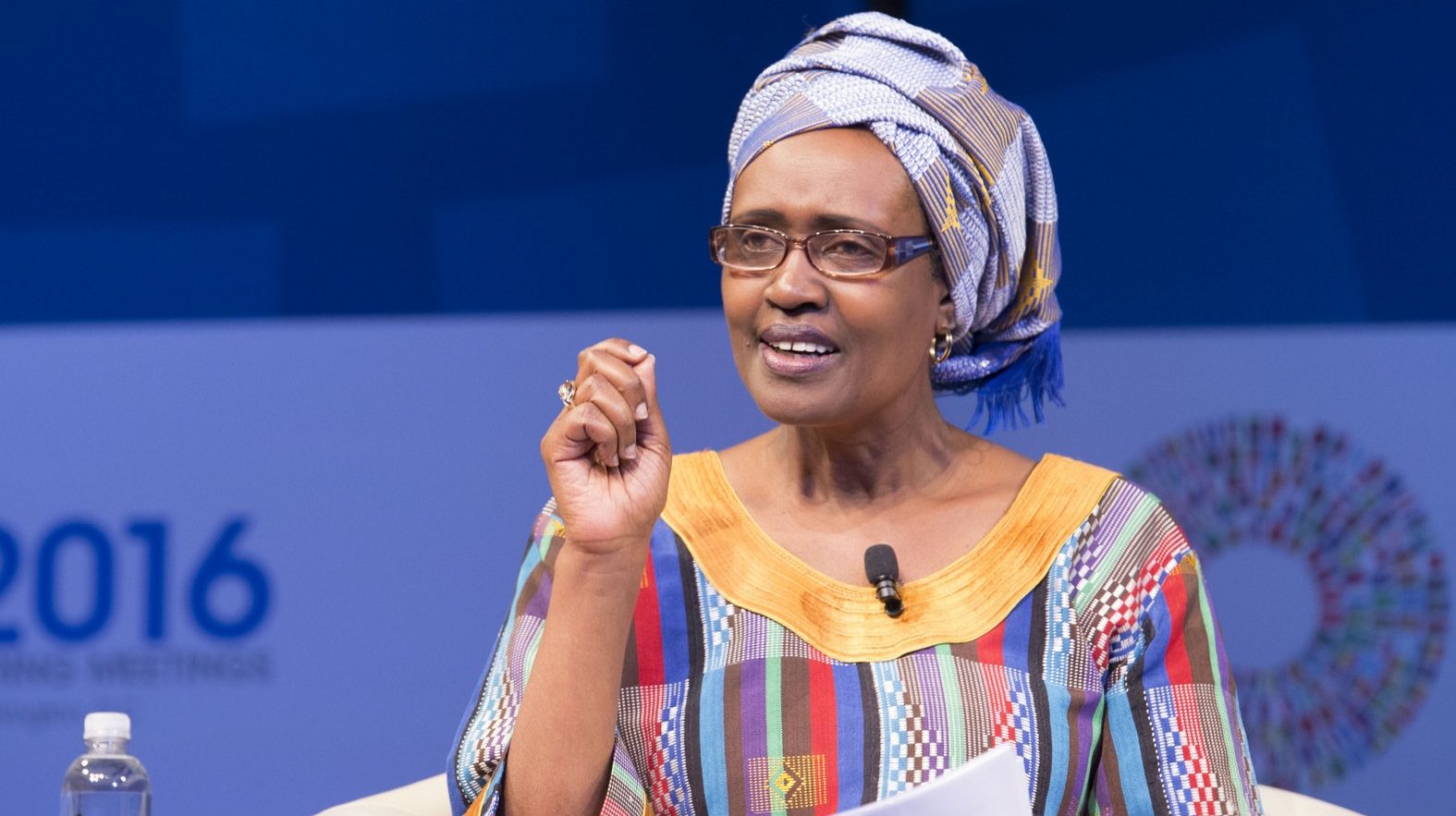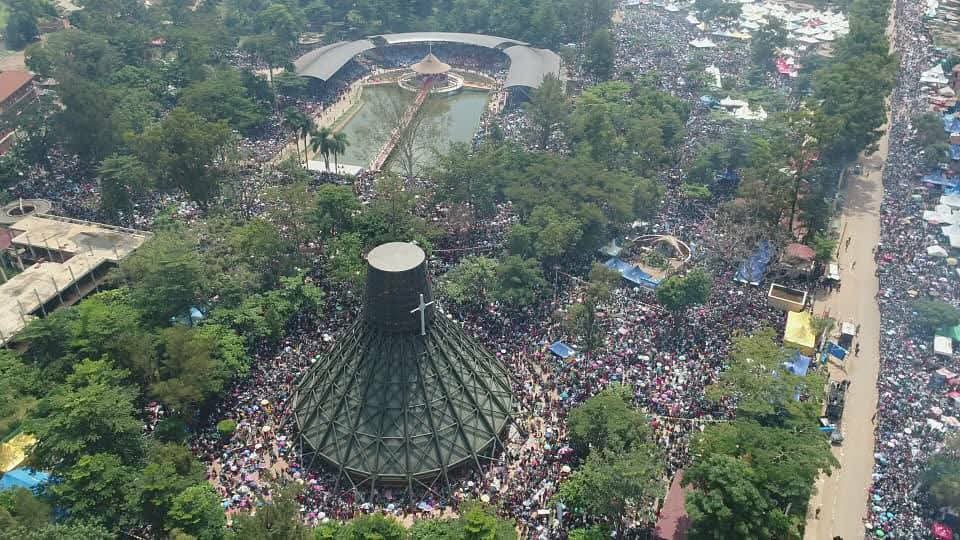Making Sense Of Increased Military Presence On Streets & Elsewhere In Uganda’s Capital Kampala
For the record, the police spokesperson, Fred Enanga, while responding to the public probing in respect of the increased military deployments, stated that the same is presently very, very, very necessary.

By Isaac Mutema
If you are a keen observer of the security on goings, you must have witnessed and seen an increase in the military presence on the streets of Kampala and its environs as well as other major towns across the country.
Let me say this straight away. Such activities by our security bosses have not been happening by accident.
The same have been informed by a number of factors. What are those factors? One can quickly pose the question. Why now, would be another valid question to ask?
Kindly sit back, we are going to offer what we think are possible answers to these questions and more of such.
For the record, the police spokesperson, Fred Enanga, while responding to the public probing in respect of the increased military deployments, stated that the same is presently very, very, very necessary.
He offers that the troops are out on the streets because of the increased threats. “The troops will stay on the streets as long as the threats last,” the soft-spoken police spin doctor divulges.
Enanga is perfectly right. They are tens of thousands of people itching to cause trouble –some massive– if given an opportunity.
Standby Order One
Let’s open with the Standby Order One issued by our Commander-in-Chief (CiC), Gen Yoweri Kaguta Museveni.
The CiC was away in Rwanda for the just concluded Commonwealth Heads of Government Meeting (Chogm). We came to know of the order following it’s leakage by the Daily Monitor Newspaper.
The same, once issued, would place the military at highest alertness to deal with any manner of threat whether external or otherwise.
Fortunately, the military was in the mood of talking when contacted about this order. The military spokesperson, Felix Kulayigye confirmed the issuance of the order.
“How does it concern you?” Kulayigye asked the probing Daily Monitor team working on the scoop.
In spite of the fact that Kulayigye said the order wasn’t meant for the media nor public’s consumption, he divulged that it had been issued to stop the movement of troops and arms.
Crucially, Kulayigye offered, the order’s purpose was to put the military’s own house in order.
Feared Obote-like coup
First things first – the uncoordinated movement of troops and arms is a stern military warning. The line would be used to mean a looming coup.
Former Vice president, Paulo Muwanga coined the line during Dr Apollo Milton Obote’s second and final administration.
Muwanga was prophesizing about the Gen Okello Lutwa and Bazilio Okello’s instigated coup.
This is how the whole thing unfolded. The masterminds disappeared from Kampala. They resurfaced in Gulu.
They had gone to Gulu to mobilize fellow Acholi tribesmen serving in the military. They eventually marched to Kampala and evicted Obote from power.
For the record, that coup took place in 1985. The plotters were themselves forced out a year later. Rebels led by Yoweri Museveni’s chased them.
Going by Kulayigye’s allusion to Muwanga’s foregoing legendary line, one can hazard a guess that his bosses could have also smelt a possible coup.
For what else could have forced them to issue the highest Standby One order, if it wasn’t because of a possible coup itself?
It should be pointed out and noted that Obote’s first government was kicked out whilst he was away in Singapore. He was there for the Commonwealth Heads of Government Meeting (Chogm).
The British administration led by Premier Edward Heath intrigued with Obote’s military Chief, Idi Amin to dislodge the Ugandan President.
Obote had issued a scathing missive calling out the British administration for its continued arms sale to the apartheid bosses in South Africa against the 1963 UN embargo.
When Heath had rose to address the meeting, he stated in passing how some participants were talking recklessly unaware that they were not going to return to power back home.
Museveni too was attending Chogm in Rwanda when he smelt a rat and issued the order. But what a striking coincidence!
Since they opine that history repeats itself, other factors remaining constant, the same must have forced Museveni to take a cue and, so, act accordingly.
If there was any doubt that something was amiss, the conduct of the CiC upon his return from Rwanda, served to remove such lingering doubt.
Upon his return to the country, the president went into frantic meetings with the army superiors to address what were billed as pertinent issues.
Among those pertinent issues were the salaries of the rank and file of the military.
Before then, Intel had leaked about the soldiers’ swelling uneasiness over the meager salaries.
Soldier’s meagre incomes
Yet the high cost of living that has for some good months now been prevailing in the country had also chipped in to make a total mockery of the soldier’s meagre incomes.
Talk was also rife about how the soldiers were gearing up to join other striking government workers over the same issue of inadequate pay cheques.
This is why the president had to call an impromptu army council to deal with the salaries of the soldiers in order to stem the undesirable consequences.
As we speak, and if all goes according to the set plan, the least paid soldier will be taking home not less than one million Uganda shillings per month!
Not so bad for our brothers and sisters in the military who have been taking home peanuts for salaries.
Muhoozi Twitter recklessness
One cannot also negate the fact that the First Son, Lt Gen MUHOOZI Kainerugaba’s use of Twitter has been an issue of grave concern within the military circles.
The president had himself complained publicly about Muhoozi’s use of Twitter. The First Son’s uncle, President Paul Kagame had told his peer not to worry. Kagame had offered to tutor Muhoozi about the use of Twitter.
That notwithstanding, Muhoozi’s tweets continued to rub Muhoozi’s parent the wrong way.
We now understand that the president, by virtue of his position as the CiC, has since put down his feet and ordered Muhoozi off his favorite platform.
Before taking leave of this issue, it is imperative to point out some of the tweets which have been unpalatable to the CiC, the military and the public in general.
Muhoozi has twitted to imply that the otherwise national UPDf army is actually an army for him, his father and uncle, Gen Caleb Akandwanaho Salim Saleh.
Muhoozi was using the initials of MK which has been invariably understood to refer to the ownership of the national UPDF army.
MK was interpreted by several observers as being a short form for either Museveni Kaguta and or Muhoozi Kainerugaba’s army.
The land’s forces chief has previously further tweeted to indicate that the UPDF is a Chwezi army. But because this particular tweet was highly divisive and controversial, Muhoozi himself quickly erased it.
See, the same had generated a lot of bad blood and loads of dust from the social media users. The social media were fuming while asking how Muhoozi could refer to the national army as one for a dynasty.
Muhoozi’s assumed presidential project has also been a divisive issue both within the army and outside. It was regrettably driving the narrative that the president seeks to create a dynasty in Uganda.
The same has been unfortunately and negatively somewhat feeding into the First Son’s other tweet about the Chwezi army. Away from the military, the high cost of living is driving Ugandans crazy–to the edge– if you so wish.
Essential commodity prices
The essential commodity prices are high up there in the sky. Yet the hyperinflation is making a mockery of the Ugandan legal tender.
Mark you, this problem of inflation coupled with scarcity of essential goods is a grave problem. Look, some leader from some Island has just lost power merely because of this very problem.
Equally angry and hungry protestors simply organized themselves jnto a mob and chased their leader from State House!
The same problem saw the Khartoum strongman, Gen Omar Bashir bundled out of power by people angry over bread prices and hungry for the scarce delicacy itself.
Yet Dr Kizza Besigye has been milking the bad situation for all the political juice that is embedded there in it. Other youths and politicians have been joining him and quite many are raring to join him in the streets.
Arresting and prosecuting the man spotting rolling eyes, has been a very, very tricky political gamble.
Neither can those measures put ugali and malagwa on the dining tables, nor deliver paraffin, laundry soap, sugar and such things to the majority of Ugandans lacking them.
The teachers are just off the striking block. The president finally managed to send them back to class.
This was after everyone else in government including the First Lady Janet Kataha Museveni, had failed to convince the teachers to return to class even after issuing out scary threats to them.
Yet we are privy to Intel about how other government staffs are also raring to hit the streets over unfulfilled salary enhancements.
Away from home to neighboring Kinshasa, some key voices there are accusing Uganda of arming the M23 rebels.
These rebels have since miraculously put on military muscle to the extent of chasing the DRC military from the Bunagana border area and commandeering it.
The Tutsi-dominated rebel outfit is known to be currently calling shots in Bunagana. They are the ones currently levying and collecting taxes whilst.
They can also afford to bark at the government in Kinshasa to hurry up to the negotiating table or else…
Regional rebel groups
Crying foul play over Uganda’s alleged betrayal, some political actors within the government and outside it are pushing for the chasing of Uganda from the joint East African army named to pacify DRC.
ADF, although, considerably weakened by now, thanks to the ongoing operation by the UPDF’s operation nicknamed Shuja, rebels being rebels, they might all the same sneak in and do some damage here and there.
Not forgetting the other terrorists from beyond Uganda whom we have been giving a bloody nose. These ones, who knows might also sneak in and repeat what they did in 2010 at the Kyaddondo Rugby Grounds and Ethiopian Village in Kansanga.
Subsequent to what I have explored above, plus the rest I might not have been able to explore in one singular piece, one can clearly see the justification behind our military leadership’s increased deployments.
The current increased military presence on the city streets and wherever, much as it might appear inconveniencing to some Ugandans, the same is perfectly a necessary inconvenience, nonetheless.






